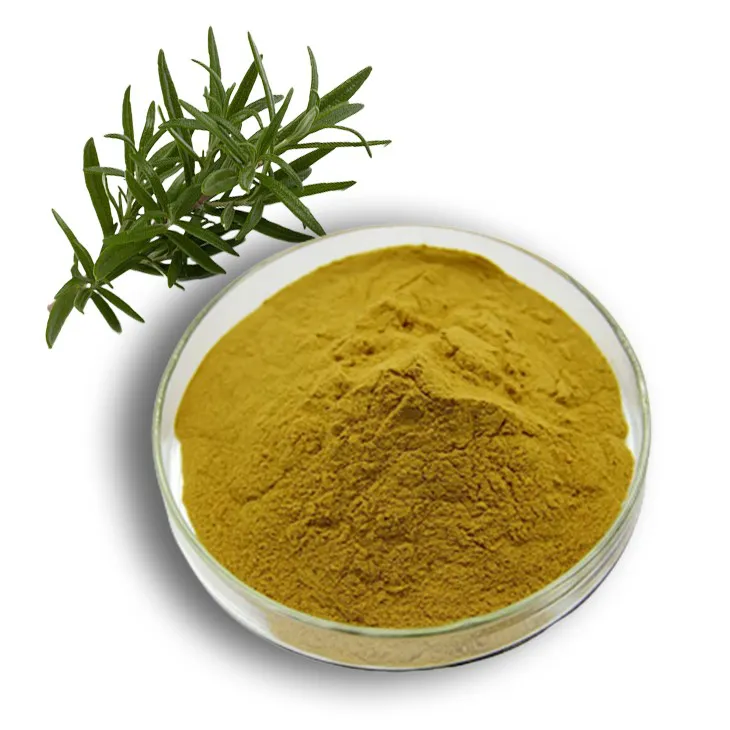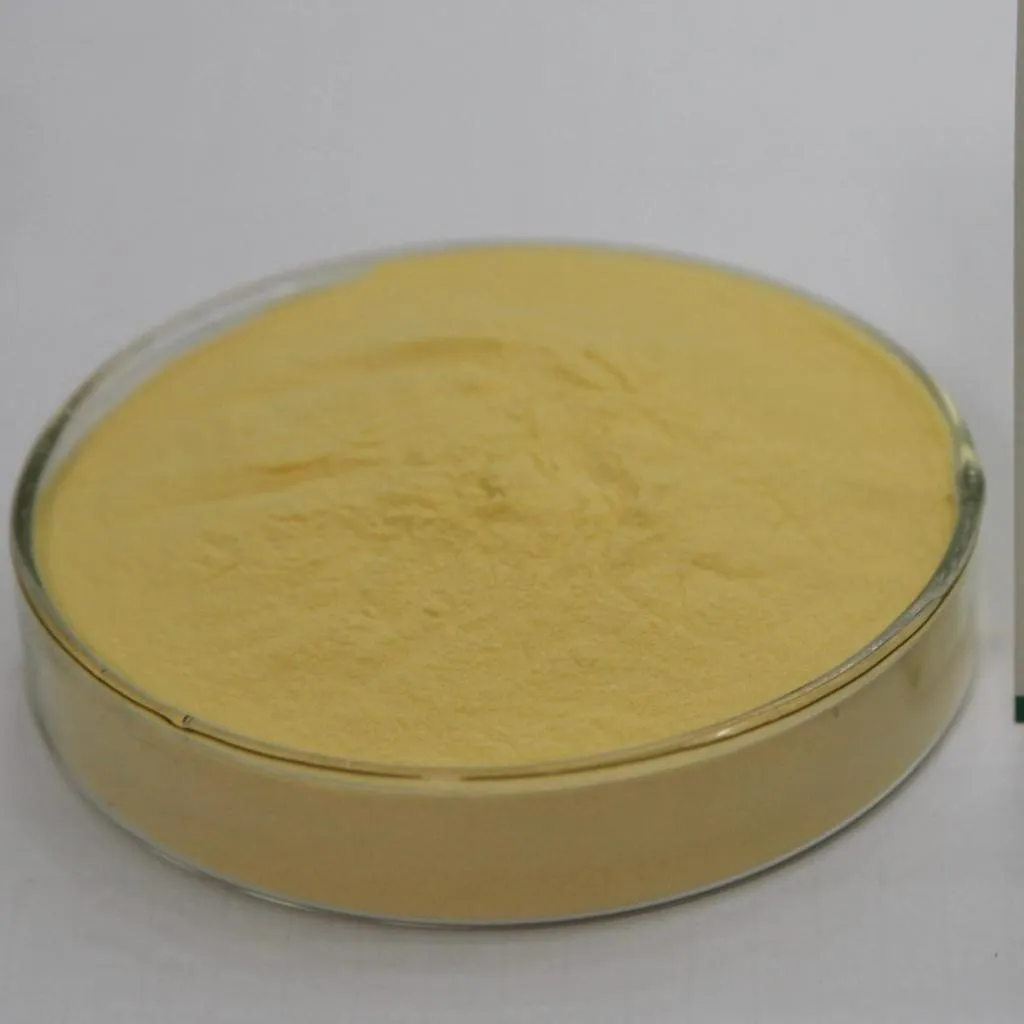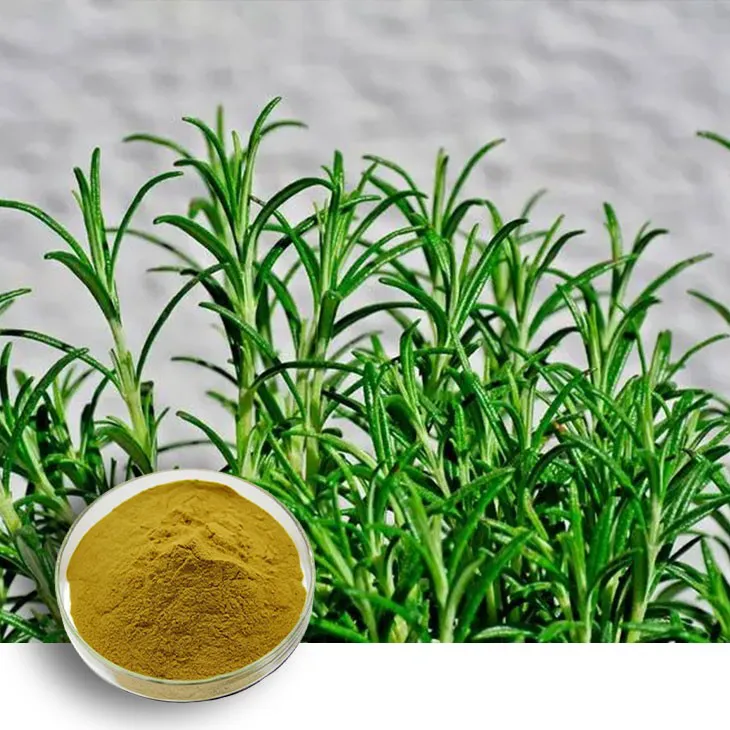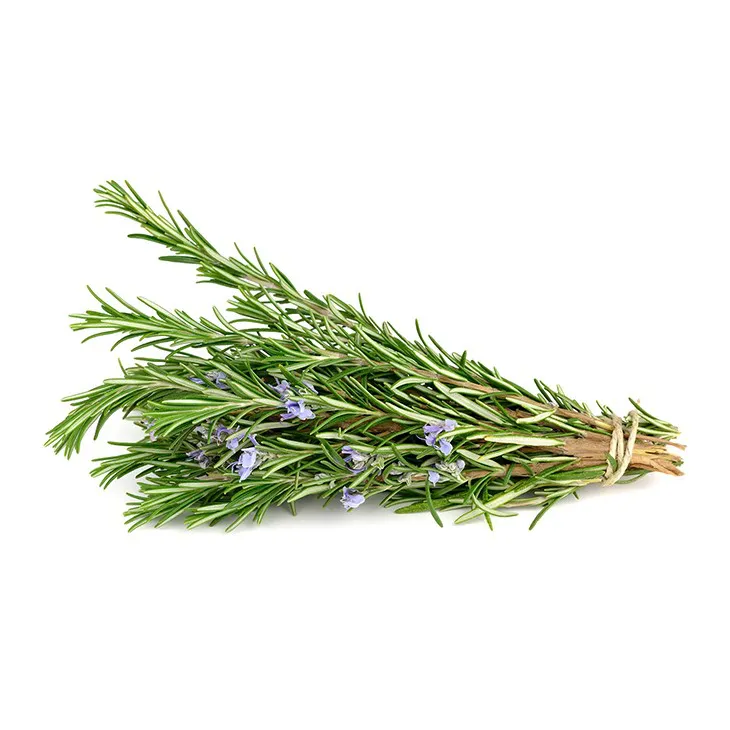- 0086-571-85302990
- sales@greenskybio.com
Organic Rosemary Extract: Naturally Boost the Immune System.
2024-11-13

Introduction to Rosemary
Rosemary (Rosmarinus officinalis) is a well - known herb that has been used for centuries in traditional medicine around the world. It is native to the Mediterranean region and has a distinct, pleasant aroma. Rosemary has been an integral part of various cuisines, used for flavoring meats, soups, and other dishes. However, its value extends far beyond the kitchen. In traditional medicine, it has been used to treat a variety of ailments, and modern research is now uncovering the many health benefits associated with its extract, especially in relation to the immune system.

Beneficial Substances in Rosemary extract
The power of Rosemary extract lies in the numerous beneficial substances it contains. Antioxidants are among the most important components.
Rosmarinic Acid
One of the key antioxidants in Rosemary extract is rosmarinic acid. This compound has been extensively studied for its antioxidant properties. It helps to prevent oxidative damage to cells, including immune cells. Oxidative stress can occur when there is an imbalance between the production of free radicals and the body's ability to detoxify them. Free radicals can damage cells, proteins, and DNA, which can lead to various health problems. By neutralizing free radicals, rosmarinic acid protects immune cells from this type of damage, allowing them to function optimally.
Carnosol
Another important antioxidant present in rosemary extract is carnosol. Carnosol also plays a crucial role in maintaining the health of immune cells. It not only helps in preventing oxidative damage but also enhances the communication between different immune cells. This communication is essential for a coordinated immune response. When the body is invaded by pathogens, different immune cells need to work together to recognize, attack, and eliminate the threat. Carnosol helps to ensure that this process occurs smoothly by facilitating the exchange of signals between immune cells.
In addition to antioxidants, rosemary extract contains phenolic compounds. These compounds are involved in immune modulation.
Phenolic Compounds and Immune Modulation
The phenolic compounds in rosemary extract can adjust the balance between pro - inflammatory and anti - inflammatory responses in the body. Inflammation is a natural response of the body to injury or infection. However, chronic inflammation can be harmful and is associated with many diseases. A proper balance between pro - inflammatory and anti - inflammatory responses is necessary for a healthy immune system. The phenolic compounds in rosemary extract help to regulate this balance, ensuring that the immune system responds appropriately to threats without over - or under - reacting.

Rosemary Extract in Fighting Pathogens
Rosemary extract has shown efficacy against a wide range of pathogens, including bacteria and viruses.
Antibacterial Properties
Studies have demonstrated that rosemary extract can inhibit the growth of various bacteria. The exact mechanisms by which it does this are still being investigated, but it is believed that the combination of its antioxidant and phenolic compounds plays a role. For example, some bacteria are sensitive to the antimicrobial effects of rosmarinic acid and carnosol. These substances may disrupt the bacterial cell membrane or interfere with essential bacterial metabolic processes, thereby preventing the bacteria from multiplying and causing infection.
Antiviral Properties
Rosemary extract has also exhibited antiviral activity. It can interfere with the replication cycle of viruses. Viruses are different from bacteria in that they require host cells to replicate. Rosemary extract may affect the ability of viruses to attach to host cells or disrupt the internal processes within the host cell that are necessary for viral replication. Although more research is needed to fully understand the antiviral mechanisms of rosemary extract, the existing evidence suggests that it can be a valuable natural defense against viral infections.

Ways to Incorporate Rosemary Extract into Daily Life
There are several ways in which individuals can incorporate organic rosemary extract into their daily lives to support their immune system.
Cooking with Rosemary
One of the simplest ways is to use rosemary in cooking. Fresh or dried rosemary can be added to a variety of dishes. For example:
- Roasted meats: Rosemary pairs well with roasted chicken, lamb, or beef. Sprinkle some fresh rosemary leaves over the meat before roasting to add flavor and also benefit from the immune - boosting properties of rosemary.
- Soups and stews: Add a sprig or two of rosemary to your favorite soup or stew recipe. As the dish simmers, the flavors of rosemary will infuse into the broth, and the beneficial compounds will be released.
- Vegetable dishes: Rosemary can enhance the taste of roasted or sautéed vegetables. Try adding it to roasted potatoes, carrots, or zucchini.
Rosemary Tea
Another way to consume rosemary extract is by making rosemary tea. Here's how:
- Take a few fresh rosemary sprigs or about a teaspoon of dried rosemary.
- Boil a cup of water.
- Place the rosemary in a teapot or cup and pour the boiling water over it.
- Let it steep for about 5 - 10 minutes, depending on your desired strength.
- Strain the tea and enjoy. You can add a bit of honey or lemon if you like for added flavor.
Rosemary Extract Supplements
For those who prefer a more concentrated form, rosemary extract supplements are also available. These supplements are typically standardized to contain a certain amount of the active compounds, such as rosmarinic acid. However, it is important to consult a healthcare professional before starting any new supplement, especially if you have any underlying health conditions or are taking medications. Supplements should be taken as directed to ensure safety and effectiveness.

Conclusion
Organic rosemary extract offers a natural and promising way to boost the immune system. With its rich array of beneficial substances, including antioxidants and phenolic compounds, it can protect immune cells, enhance immune cell communication, and modulate the body's inflammatory response. Its ability to fight against a variety of pathogens further adds to its value. By incorporating rosemary extract into our daily lives through cooking, drinking tea, or taking supplements (under proper guidance), we can take proactive steps towards maintaining a more robust and healthy immune system.
FAQ:
What are the main beneficial substances in organic rosemary extract?
Organic rosemary extract contains antioxidants such as rosmarinic acid and carnosol, as well as phenolic compounds. These substances play important roles in strengthening the immune system.
How do antioxidants in rosemary extract help the immune system?
Antioxidants like rosmarinic acid and carnosol in rosemary extract prevent oxidative damage to immune cells and enhance the communication between different immune cells, which is crucial for a coordinated immune response.
What is the role of phenolic compounds in the immune - related functions of rosemary extract?
The phenolic compounds in rosemary extract are involved in immune modulation. They can adjust the balance between pro - inflammatory and anti - inflammatory responses in the body, and a proper balance is necessary for a healthy immune system.
Can rosemary extract fight against viruses?
Yes, rosemary extract has demonstrated efficacy against a wide range of bacteria and viruses, which is one of the reasons it can help boost the immune system.
How can one use organic rosemary extract to boost the immune system?
One can use organic rosemary extract in cooking, make it into a tea, or take it in supplement form to take a step towards a more robust immune system.
Related literature
- The Immunomodulatory Effects of Rosemary Extracts"
- "Rosemary Extract: A Natural Booster for the Immune System"
- ▶ Hesperidin
- ▶ Citrus Bioflavonoids
- ▶ Plant Extract
- ▶ lycopene
- ▶ Diosmin
- ▶ Grape seed extract
- ▶ Sea buckthorn Juice Powder
- ▶ Fruit Juice Powder
- ▶ Hops Extract
- ▶ Artichoke Extract
- ▶ Mushroom extract
- ▶ Astaxanthin
- ▶ Green Tea Extract
- ▶ Curcumin
- ▶ Horse Chestnut Extract
- ▶ Other Product
- ▶ Boswellia Serrata Extract
- ▶ Resveratrol
- ▶ Marigold Extract
- ▶ Grape Leaf Extract
- ▶ New Product
- ▶ Aminolevulinic acid
- ▶ Cranberry Extract
- ▶ Red Yeast Rice
- ▶ Red Wine Extract
-
Wheat Germ Extract
2024-11-13
-
Withania Somnifera Extract
2024-11-13
-
Sugarcane Extract
2024-11-13
-
Phellodendron Extract
2024-11-13
-
Cocoa Extract
2024-11-13
-
Polygonum Cuspidatum Extract
2024-11-13
-
Peppermint Oil
2024-11-13
-
Curcuma Longa Extract
2024-11-13
-
Red Wine Extract
2024-11-13
-
Rose Hip Extract
2024-11-13





















